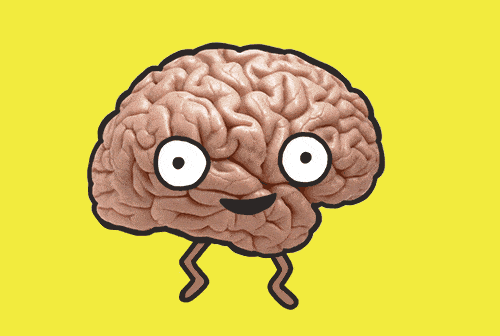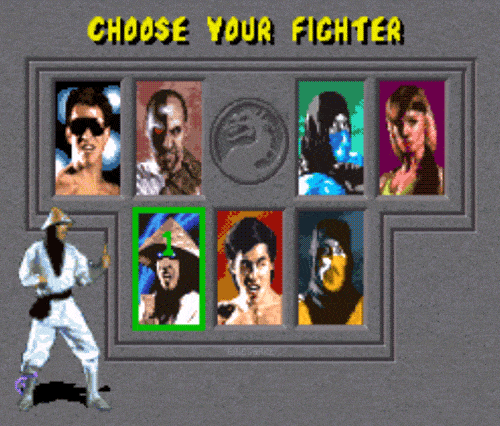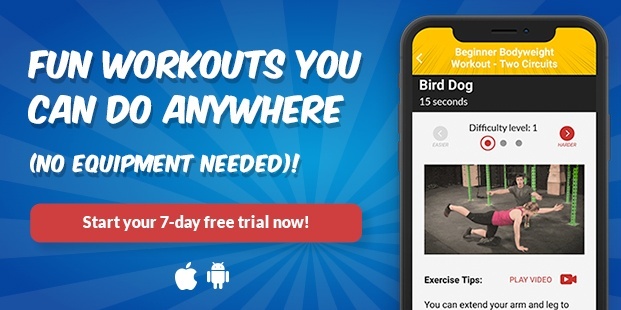How to Start Meditating: The Ultimate Guide for Beginner’s Meditation

This article is from NF Team Member Taylor
It’s time to learn how to meditate!
Being mindful is practically a superpower, which is why we assign fun meditation assignments to our 1-on-1 Online Coaching Clients.
Here’s what we’ll cover in our Beginner’s Guide to Meditation:
- Why is meditation important? (The Rider and the Elephant)
- What exactly is meditation? (The perils of being lost in thought)
- How do you meditate? How long should beginners meditate?
- What are the benefits of meditation?
- How often should you meditate?
- Getting started with a meditation practice (Next steps)
Go find a quiet place. Then let’s get started.
Why Is Meditation Important?

I wasn’t kidding earlier when I said meditation is practically a superpower.
Think of this superpower like the power of X-men’s Mystique, but for your mind.

Instead of the ability to alter your appearance to meet the challenges of any given situation, meditation allows you to alter your mind to conquer the day.
Why does this matter?
Because sometimes our minds can seem like they have a mind of their own:
- When we are on our commute and someone is a jerk, we get angry. We don’t seem to have a choice in the matter – we just GET ANGRY.
- When a friend says something stupid, we roll our eyes.
- When they say something witty and intelligent, we laugh.
There is no deliberation, no Council of Elrond to decide how you should feel and respond.
That’s just how our brains work.

Daniel Kahneman, in the famed Thinking Fast and Slow, proposed we think about thinking in two ways.
- System 1: Fast Thinking – automatic, frequent, emotional, subconscious.
- System 2: Slow thinking – deliberative, effortful, infrequent, logical, conscious.
System 1 is responsible for most of what you do every day. This fast thinking does so much on your behalf, that you may not even realize it.
System 2 doesn’t kick in until you are tasked with something like solving a riddle, filling out a tax form, or walking at a pace that is unnaturally fast.
Another social psychologist, Jonathan Haidt, describes these systems with a different metaphor: a rider on an elephant.

In The Happiness Hypothesis, he explains he selected this metaphor to demonstrate the power of the elephant (fast thinking), and the powerlessness of the rider (slow thinking). While the rider might feel in control, at the top of the elephant with reigns in hand, it is truly the elephant that is running things.
What Exactly Is Meditation?

Meditation is simply the practice of learning how to pay attention.
It’s not something magic.
It’s not a cult or a religion.
Meditation is just a mental exercise to strengthen your mind.

This mental exercise is increasingly necessary in the modern world.
It turns out, at any given time almost half of us are lost in thought unrelated to what’s in front of us. And when we are mentally wandering, we are significantly less happy.[1]
As Matthieu Ricard explains in his TED Talk – when neuroscientists looked at his brain while meditating, he scored “off the scale” in brain activity related to happiness, compassion, and altruism.
At the end of the day, isn’t happiness what we’re all chasing?
That’s why we spend so much time with “mindset” in our 1-on-1 Online Coaching Program. Sure, we help people lose weight and get strong, but we also assign fun “side quests” to help with mindfulness, gratitude, and general well being.
How Do You Meditate? How Long Should Beginners Meditate?

To start, pick a time in your day you can regularly designate as your time to meditate.
It should be a time you can find a quiet place, without distraction or interruption.
As a beginner, you don’t need to meditate for long. Just five minutes a day is a great place to start.
Too much? Try TWO minutes.
The important part is building the daily habit. We can bump up the frequency down the road.
The meditation practice I’m going to describe for you below is a basic mindfulness practice. There are many different styles of meditation, but every type of meditation is about cultivating attention and awareness, or learning to be in the present moment without grasping. [2]
Be sure to set a timer before you begin. Time tends to slow down when in deep meditation, so when you’re just starting it may feel like 10 minutes…but it’s only been 5.

The timer will help here at first.
AS A BEGINNER, HERE’S HOW TO MEDITATE:
- Find a place to sit that allows your back to be in an upright position. You don’t need to sit cross-legged, but you can if you wish. A chair or sitting against a wall also works well. Feel free to use a cushion under your bottom to help your posture and make yourself more comfortable. The goal is a posture that helps you stay alert, but is still comfortable. You can meditate with your eyes open or closed.
- As you begin, take several deep, slow breaths to gather concentration. Inhale deeply, filling your lungs to the brim. Then slowly exhale. Follow your breath carefully with your attention through this process.
- After a few breaths, or when you feel your concentration has settled, begin to breathe naturally. Notice the breath at a specific point, most commonly with the rising and falling of the chest, at your nostrils, or at your abdomen. Don’t force it. Don’t glue your attention there. Simply allow your breath to come and go naturally, following it as it naturally unfolds.
- When you get lost in thought, simply return your attention back to the breath. Bringing your attention back to the breath is a central part of the process – think about it like performing an exercise repetition. Each time you do this you are rewiring your brain – no different from doing a repetition in strength training. So, don’t feel guilty or beat yourself up. You can’t control when you get distracted. But then magically, each time you realize you are distracted and you “wake up” – at this point, just return to the breath!
This is where we recommend most beginners start – a broad and basic breath concentration practice. Think about this no differently than starting with just the bar before adding weight, when learning to squat.
Three meditation apps that some at Team Nerd Fitness have had success with:
These programs can help you get going with a simple mindfulness practice.
Here’s something else to consider as you get started:
Beginners often find it difficult to stay aware when thoughts arise, and find themselves noticing they have been thinking only after being lost in thoughts for several minutes.

This is normal!
When you notice this happening, just return to focusing on your breath.
One last thing to consider would be guided meditations, where someone’s voice guides and directs you through a mindfulness practice.
Guided meditation is great to incorporate into anyone’s meditation practice (beginner, intermediate, or advanced), and certainly when the mind is especially restless.
Here are 5 resources that may help with guided meditation:
- UCLA Mindful Awareness Research Center – Simple and effective mindfulness guided practice.
- Ohio University guided meditations – a variety of styles to try.
- UC San Diego’s Center for Mindfulness – a list of long and short guided meditations.
- A compilation mostly mindfulness audio and guided meditations.
- Doctor Who fans might enjoy Dalek’s Relaxation for Humans, although I can’t comment on its effectiveness:
What Are the Benefits of Meditation?

The superpower meditation builds is the ability to be at the character selection screen, for any given situation, at any given time.

You see, because of how our brains work, it can be hard to exert a level of control in our lives – from our response to a social interaction, to changing fundamental aspects of our life.
When something happens, we just react.
That’s System 1.
There’s no conscious deliberative process when a cute girl/guy walks up to you, or some car cuts you off in traffic. It’s no surprise that we often feel frustrated with our reactions after-the-fact.

Imagine the ability to replay the events, and always act with a calm and collected demeanor, delivering the best response you have to offer. That’s what meditation can help do for you.
I’m not talking managing an emotion, or suppressing a thought.
This is not “serenity now, insanity later.”

This isn’t about dealing with things AFTER you get angry or sad, but the power to actually change both how you feel and how you respond.
That is true power.
Neuroscientist Jill Bolte Taylor uses anger as an example in her wonderful TED Talk:
In her speech, Dr. Taylor explains that the physiological response from anger can only last 90 seconds.
Yet, as humans, we can stay angry seemingly FOREVER.
Why?
We are doing it to ourselves, by rethinking the thought and redoing the physiological response over and over. If you’ve ever gotten angry and let it fester, feeling angrier and angrier after, you know what she’s talking about.

As Dr.Taylor explains, we all have a superpower within us, but most of us surrender it.
Or as she puts us, we surrender our neurocircuitry:
“We are neurocircuitry. Your neurocircuitry is YOUR neurocircuitry, and you do not have the ability to stimulate and trigger my neurocircuitry without my permission. You cannot make me angry, unless I stick my trigger out there for you to pounce on and stimulate my neurocircuitry. If I give you the power to stimulate my neurocircuitry, then I have given you my power. And I give you my power, then I become vulnerable to you…”
This isn’t just helpful for our daily interactions, but for big life changes too – like cleaning up your diet or finally building that habit of exercise.
Through meditation, you can learn to focus your attention where you choose. As you begin the practice, you will start to notice your thoughts and feelings more consciously, and let go of the ones that aren’t useful to you. You will start to reforge the character of your choosing.
This might have real physiological benefits.
While there is obviously some hype going on with mindfulness (it’s over a billion-dollar industry in the U.S. alone), there does some to be some evidence of meditation providing “modest benefits” for certain conditions.[3]
Dan Harris does a great job summarizing some of the benefits of meditation here:
Meditation may help:
- Reduce stress. Studies have shown that a meditation practice can help users lower their stress levels. Although to be fair, it doesn’t seem to impact cortisol levels, our main stress hormone.[4] Still, being able to recenter can help you look at a stressful scenario with fresh eyes.
- Alleviate depression. When we’re stressed, we release inflammatory chemicals called cytokines, which can lead to depression. A meditation practice may help limit the release of cytokines, reducing the risk of depression.[5]
- Manage pain. Our perceptions of pain are tied to our state of mind.[6] Given this, it makes sense that a meditation practice can help alleviate certain types of pain.[7]
Plus, Wolverine meditates, so mindfulness may help you come to terms with the fact you were designed to be a mindless, soulless killing machine.[8]

Or…help you calm down after your flight is delayed for an hour. Same difference.
How Often Should You Meditate?

Now that you know how to meditate, you need to understand one final thing.
You have to train this power like a muscle.
Even if you have a good day or a good week in the gym, you need to be at it for months and months, and then STAY at it, to live with the benefits for a lifetime.
We’re doing the same thing with our meditation practice.
No different from squatting incrementally more weight, you are training your brain to get stronger.

Just like squatting, you won’t see profound benefits after a single session. Instead, you will level up after weeks and months of consistency.
The same way squatting regularly builds muscle, meditation literally builds gray matter in your brain.[9] Soon enough, that “automatic mode” or elephant we talked about will begin to change too (literally rewiring your brain).[10]
Much like groceries will slowly begin to feel lighter after strength training, so to will you gradually notice the benefits of meditation.
So how often should a beginner meditate?
Daily if possible.
It might feel intimidating now to think about, but just like with diet and exercise, once the habit is established, you won’t even notice:
- Once you become someone who goes to the gym regularly, that’s just who you are now.
- Once you become someone who meditates for five minutes a day, that’s just what you do.
Getting Started With a Meditation Practice (Next Steps)

We all know the story of Luke Skywalker, not because he had this power within him and chose to walk away from it, but because he seized the opportunity to understand the Force.
Don’t be the Jedi who is walking away from your potential.
As a kid, I always thought that comic books had it backwards – the superpower found the superhero (I’m looking at you Spiderman), rather than the other way around.

What if we all had the potential to develop our power, and only the true superheroes do? Now that would be awesome.
That’s what meditation allows us to do.
Not only does meditation boost your health in a range of tangible ways, but more importantly, it helps us to enjoy the here and now. You might call this loving the game, or enjoying the process.
That’s why today we’re issuing a meditation challenge:
- Commit to meditating every day, for two weeks straight (using an app, website, or guided meditation if you wish).
- It can just be for five minutes. Or two minutes.
The important part is establishing a new habit.
Then maybe we can all start bending spoons together:

I think that just about does it for this article.
Before I let you go, if you want to continue your journey with Nerd Fitness as you level up your life, I’ve got three great options for you to do so.
HERE ARE NEXT STEPS IF YOU WANT TO GO FARTHER!
#1) Our 1-on-1 Online Coaching Program: a coaching program for busy people to help them lose weight, get strong, and level up their lives!
We believe that mindfulness is so important, we assign fun meditation “side quests” to our clients, to help build the practice.
#2) Exercising at home and need a plan to follow? Check out Nerd Fitness Journey!
Our fun habit-building app helps you exercise more frequently, eat healthier, and level up your life (literally).
Try your free trial right here:
#3) Join our amazing free community, the Nerd Fitness Rebellion! Not only is it free to join, but we’ll provide you with loads of free goodies when you sign-up:
- The 15 mistakes you don’t want to make.
- Full guide to the most effective diet and why it works.
- Complete and track your first workout today, no gym required.
Now, your turn:
What questions do you have about meditation?
What are your experiences?
Struggles?
Victory?
-Taylor
PS: Make sure you check out A Nerd’s Guide to Mindfulness for more tips and tricks on living in the here and now.
###
Gif source: Mystique, Smiling Brain, Mortal Kombat, Anakin Skywalker, Wolverine in rain, Spider-Man, Homer, Spoon
photo source: Rob Young:Lego X-Men – Professor X, Alexey Kuzin © 123RF.com, Yevgeniya Borodinova © 123RF.com
from Nerd Fitness https://ift.tt/2p9RiV2


0 comments:
Post a Comment